Protected: Launching the Indigenous Learning Platform
There is no excerpt because this is a protected post.
There is no excerpt because this is a protected post.
“Indigenous Voices” is a podcast produced by the FSC Indigenous Foundation, dedicated especially to highlight the vision and perspectives of the Indigenous Peoples of the world.
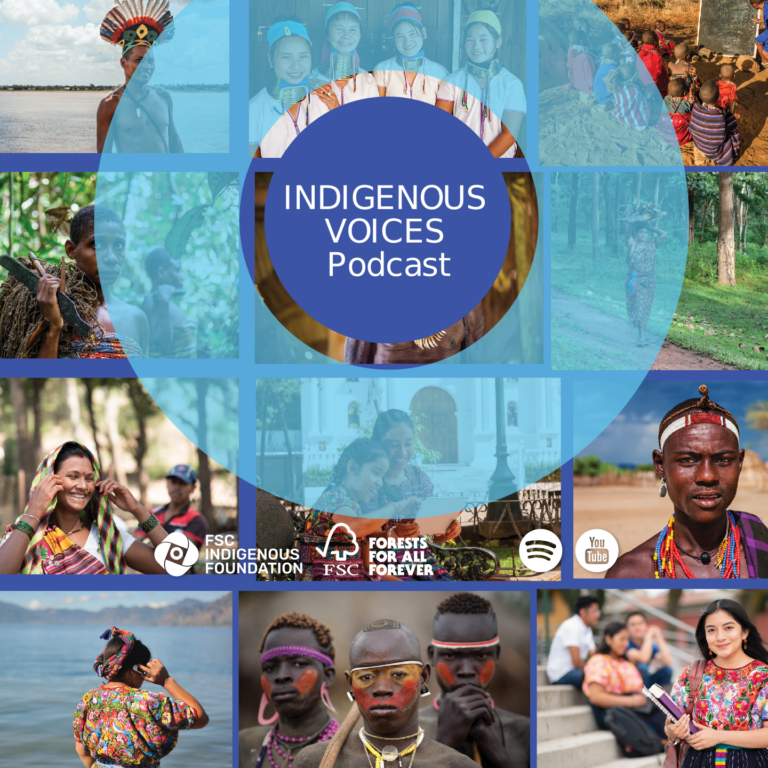
Panama City, Panama. The FSC Indigenous Foundation is launching the “Indigenous Voices” podcast as part of its work to recognize the global value of Indigenous Peoples, their rights, livelihoods, territories, and natural capital. Indigenous leaders and experts on Indigenous Peoples from around the world participate in this podcast and share their thoughts on the main issues faced by Indigenous Peoples, as well as their relationship with the conservation of forests and other natural ecosystems, cultures, biodiversity, and life on the planet.
In each episode, we listen to their experiences, opinions, analyses, and proposals related to the global issues we face as human beings.
In the first episodes, we learn more about the work of the FSC Indigenous Foundation, the Indigenous Peoples Alliance for Rights and Development (IPARD) Program, and the co-creation of long-term sustainable solutions to guarantee the Indigenous Peoples’ rights and catalyze their holistic self-development in the context of increasing global environmental challenges to the planet and to their territories, rights, knowledge, and values. We talk with leaders and experts from Sweden, New Zealand, Brazil, and Peru.
We present the first episodes of “Indigenous Voices” below.
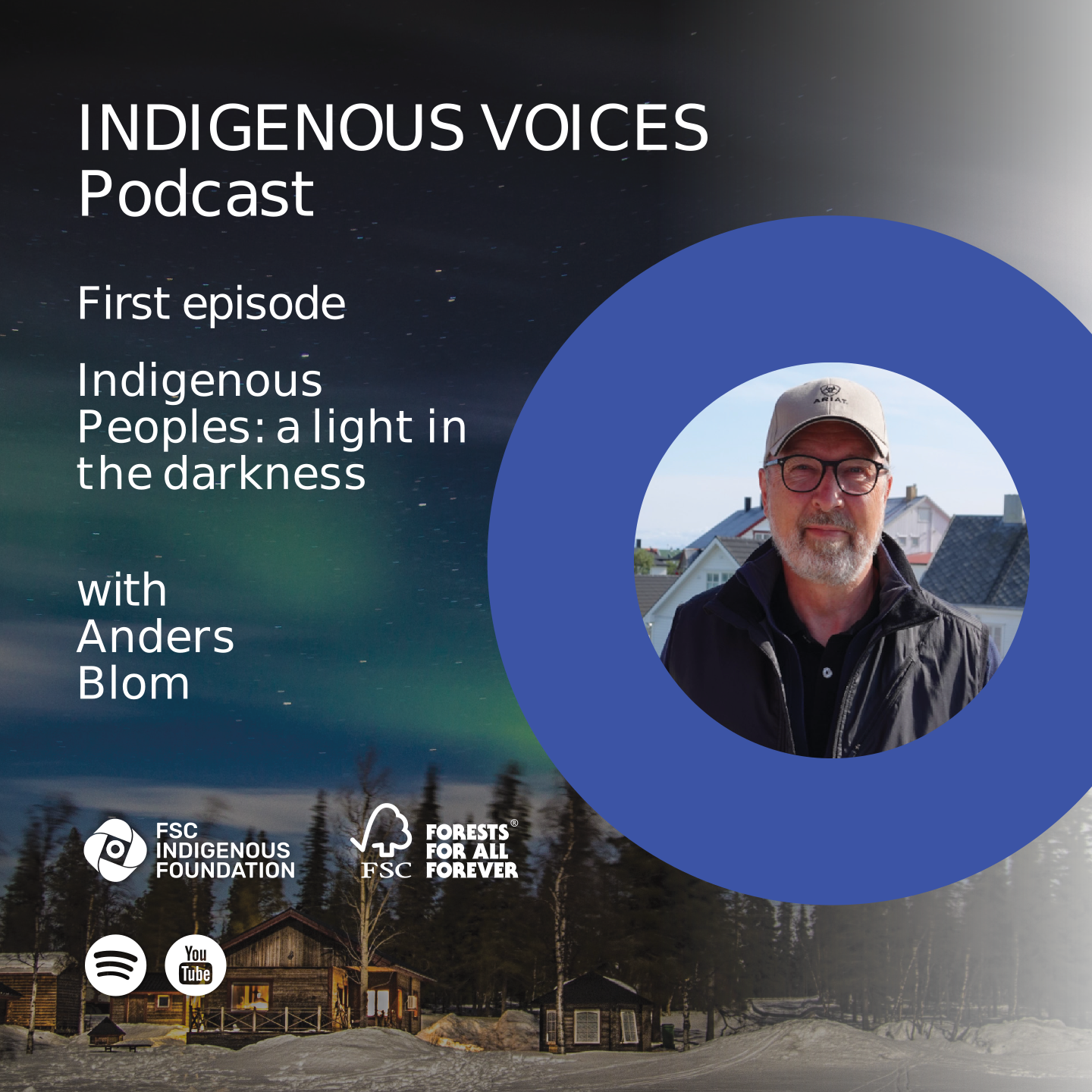
In the first episode of “Indigenous Voices”, Anders Blom, a member of the Sámi People of Sweden, Chairman of the FSC Indigenous Foundation Board, and Former President of the Protect Sápmi Foundation, will share his reflections on the main challenges that Indigenous Peoples around the world are facing and how the FSC Indigenous Foundation is addressing these challenges at many levels.
“One of the most important characteristics of the work done by the FSC Indigenous Foundation is the recovery of Indigenous Peoples’ values. Values that are repeated in communities around the world and that can be replicated to protect the planet.”
Anders Blom
In addition, Anders will provide specific recommendations for donors, investors, and companies to join efforts and coordinate joint actions with Indigenous Peoples to address the climate crisis.
The episode will also feature Anders’ analysis of the global commitment to invest $1.7 billion to fight and mitigate climate change involving the effective participation and leadership of Indigenous Peoples.
Listen to the first episode here.
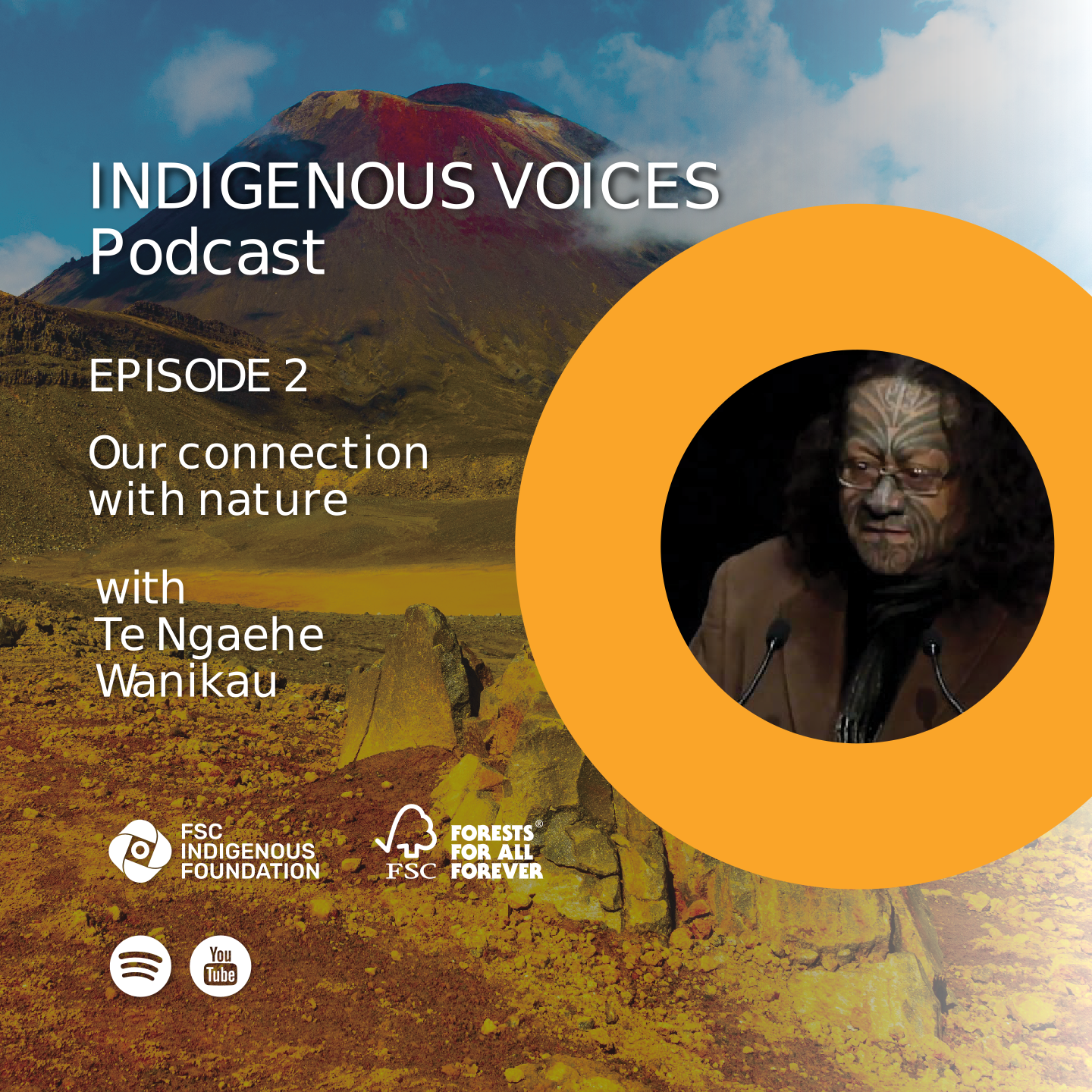
The second episode of “Indigenous Voices” will explore the millenary relationship of Indigenous Peoples with nature and how this harmonic connection based on reciprocity has managed to conserve the natural resources essential for the survival of humankind.
Te Ngaehe Wanikau of the Maori People of New Zealand and alternate member of the FSC Permanent Indigenous Peoples Committee will explain the connection between Indigenous Peoples and nature, and analyze the importance of understanding this relationship to meet the goals of sustainable development and face the climate, health and food crises.
“By taking care of the Earth, the Earth will take care of you, if you take care of people, people will take care of you. Just as the gods protect the environment, water, forests and lands, we humans have a responsibility to take care of them as well.” Te Ngaehe Wanikau
In addition, this episode also shares the key to co-create successful solutions for governance and management of Indigenous territories and natural resources.
Listen to the second episode here.
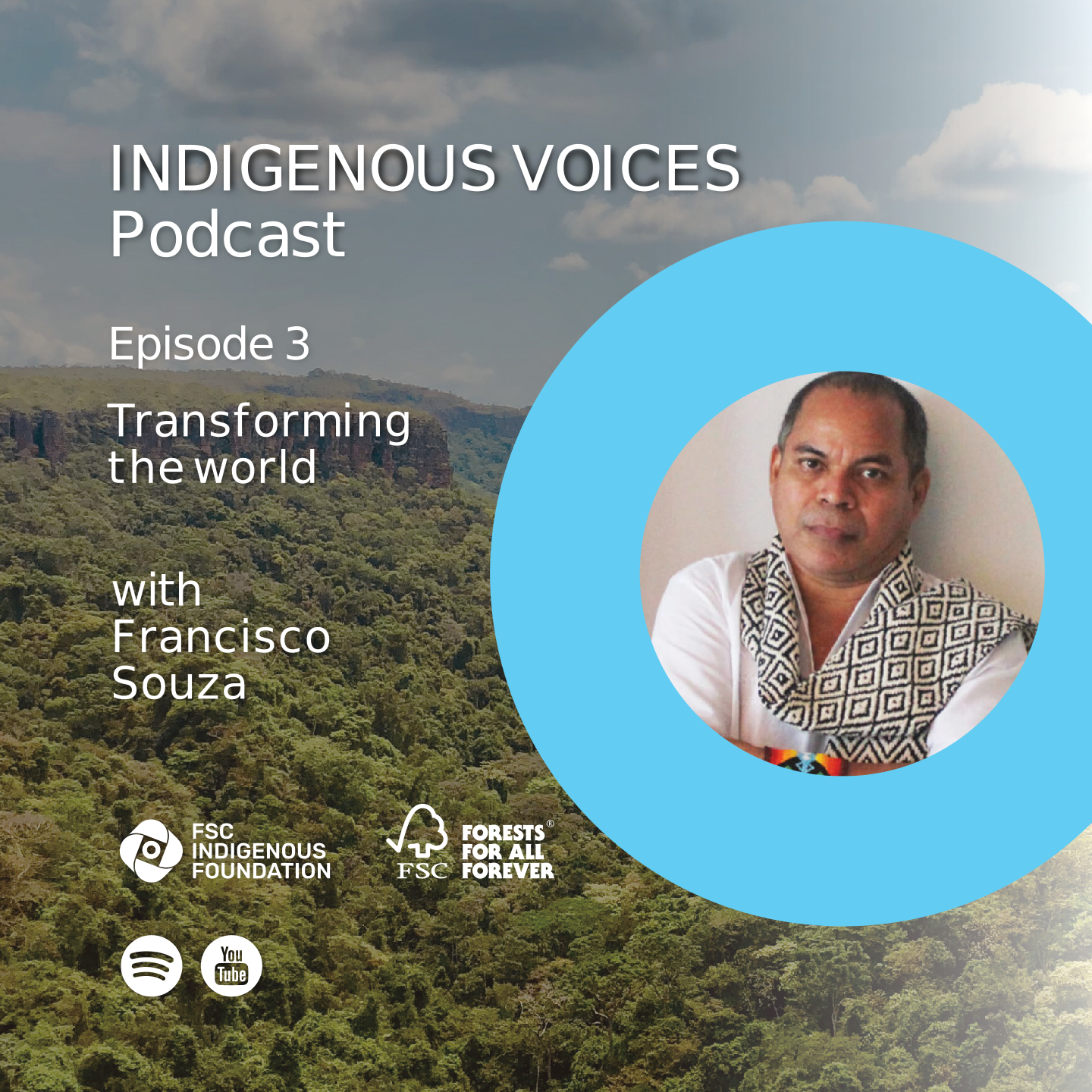
In the third episode of “Indigenous Voices,” Francisco Souza, member of the Apurinã People of the Brazilian Amazon and Managing Director of the FSC Indigenous Foundation, will share his experience of more than 30 years building and leading initiatives related to Indigenous Peoples, forests, sustainable development, climate change, business development, climate change, finance, and the environment in more than 40 countries.
Additionally, he will tell us his story and the motivations that led him to become the Managing Director of the FSC Indigenous Foundation and to drive the co-creation of long-term solutions based on the vision, values, and ancestral knowledge of Indigenous Peoples,
as well as the innovative approaches of the Indigenous Peoples Alliance for Rights and Development (IPARD) to promote the rights of Indigenous Peoples, strengthen their capacities, and catalyze their holistic self-development through innovative businesses and partnership models.
“Indigenous Peoples are willing to share their holistic vision of caring for nature with the world; the time has come to establish a dialogue between the different sectors so that Indigenous Peoples can guide us towards a balance with the Earth. To this end, the rights of Peoples to self-determination, non-violence, free prior and informed consent protocols, and to conserve their territories must be respected.” Francisco Souza
Listen to the third episode here.
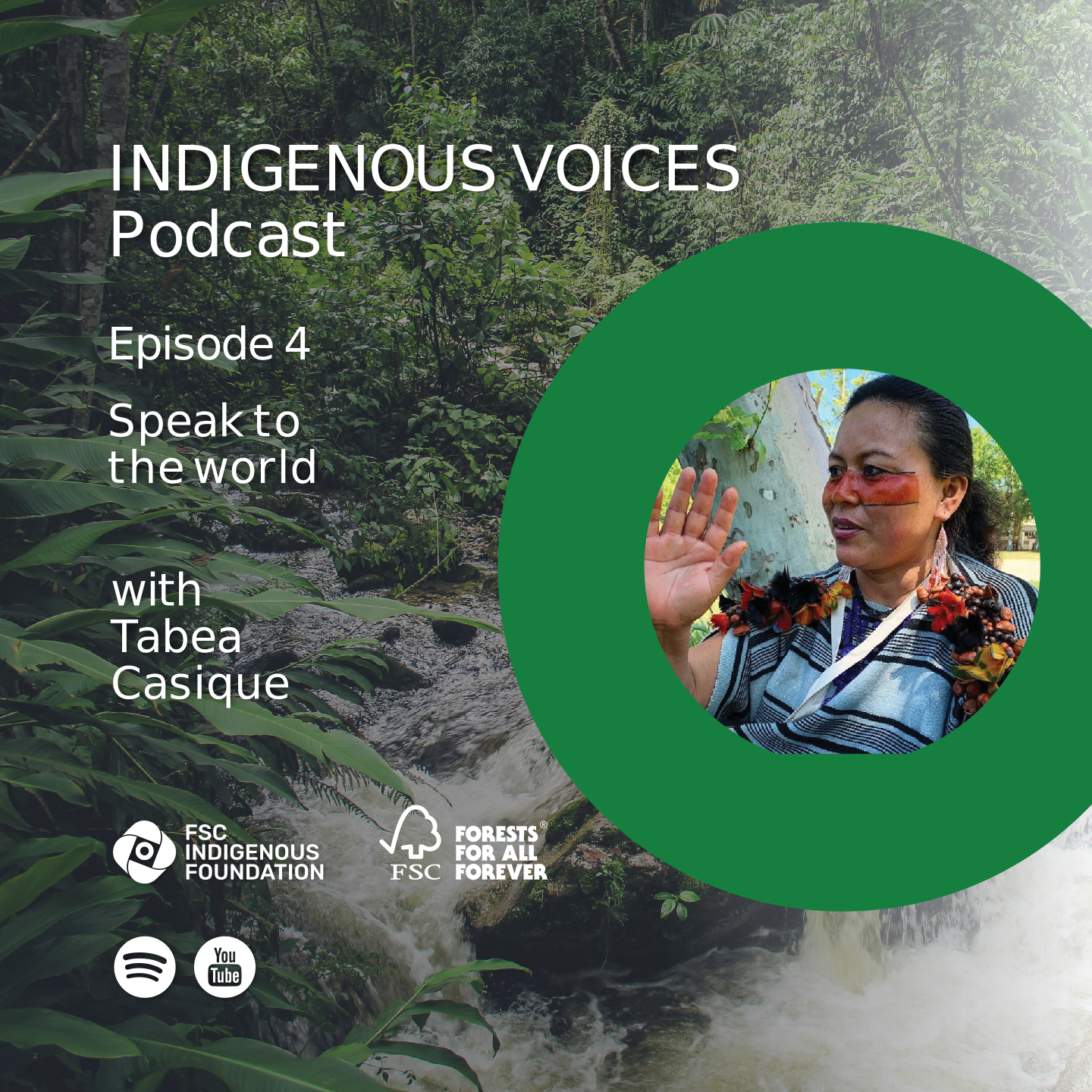
In the fourth episode of “Indigenous Voices,” we speak with Tabea Casique, Indigenous leader of the Asháninka People of Peru, Coordinator of the Education, Science and Technology Area of the Coordinator of Indigenous Organizations of the Amazon Basin (COICA) and member of the FSC Permanent Indigenous Peoples Committee representing South America.
This episode shows how the promotion of education, science and technology are the key elements to strengthen Indigenous organizations as well as to promote the creation of innovative solutions focused on the needs of Indigenous Peoples.
“Women’s participation from the communities is not visible. However, they contribute a lot from their communities, accompanying them with communal and organizational work in defense of territories and forests and Indigenous governance.” Tabea Casique
Listen to the fourth episode here.
Renowned photographers from around the world will select the winning photos.
The FSC Indigenous Foundation has convened expert photographers from around the world to serve on a judging panel for our Indigenous Innovative Solutions Photo Contest. The contest encourages Indigenous communicators and photographers to tell their stories and those of their communities through photographs so we can learn more about their realities, problems, proposals, and innovative solutions to defend their rights, manage their territories, and protect Mother Earth.
Read on to learn the judges’ stories and motivations and to see their inspirational work on themes of Indigenous Peoples, the climate crisis, human rights, gender, exploring identities, and more.
If you are interested in entering the photo contest, you may find more information here and submit your photo before April 15th.
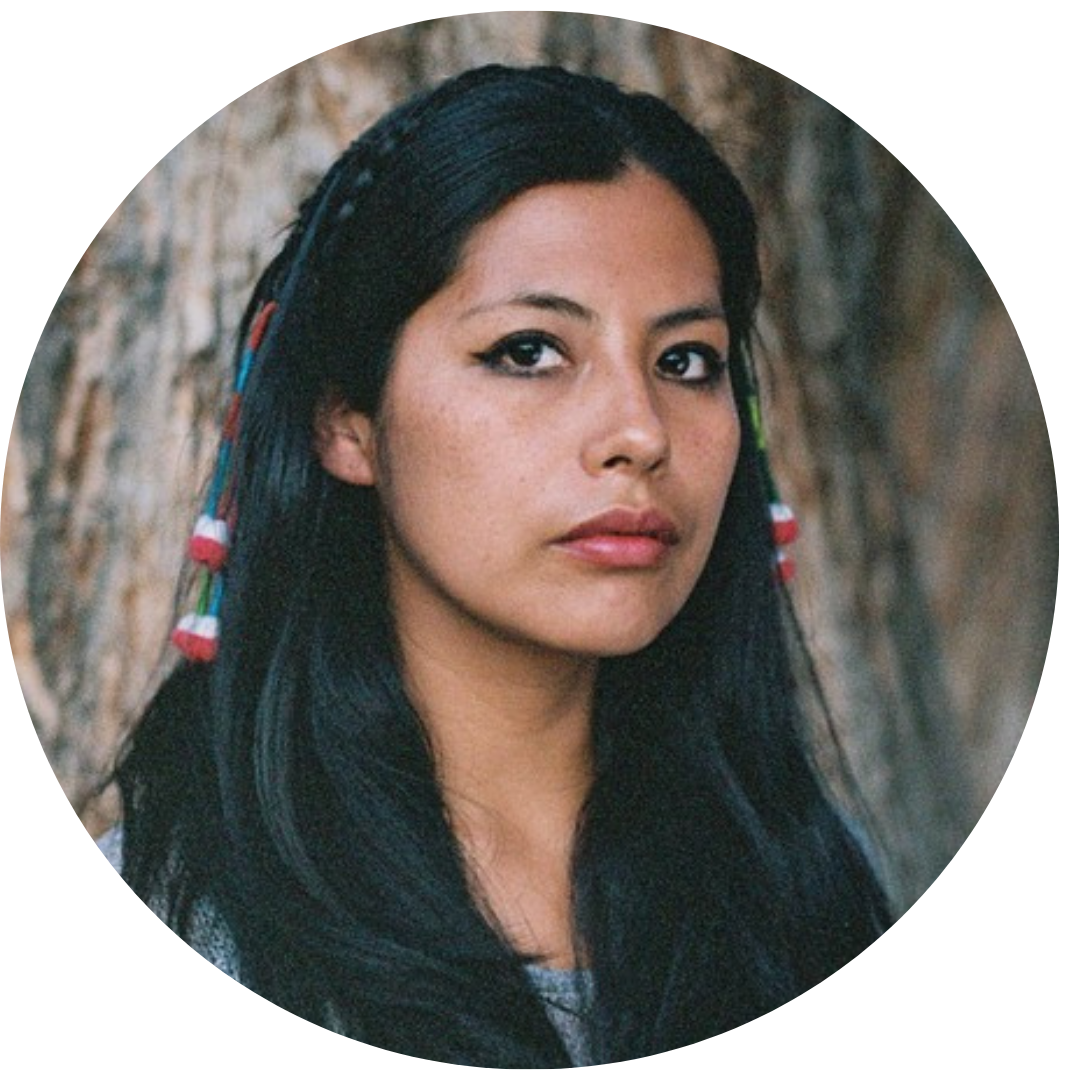
Sara Aliaga Ticona is an Aymara woman, social communicator, documentary photographer and National Geographic explorer based in the city of La Paz, and founder of the first collective of women photographers in Bolivia, War-MiPhoto.
Her thematic axes of artistic and documentary research are based on gender and identity, human rights and Indigenous Peoples.
She is third-place winner of POYLATAM (2021), grantee of the fund for research and new narratives on drugs of the Open Society and Gabo Foundation (2020), winner of the Photo Book Award of Fotoevidence and World Press Photo with the collective COVILATAM, (2021) Amazon Rainforest Journalism Fund and Pulitzer Center Journalism Fund Fellow (2021), National Geographic Journalist Emergency Fund Fellow (2020), Women Photograph Workshop winner (2019), Reporters Instructed in Saving Colleagues TRAINING 2019 Fellow.
She has publications in the research magazine of the University of Bern, Switzerland, Neue Zürcher Zeitung newspaper, The New York Times, The Guardian, BBC, El País, NBC, POY Latam Magazine, La Nación, Cosmopolitan, Reuters Agency, AP, ABC Nyheter, bistandsaktuelt, Vice among others and photographic exhibitions in New York, India, Paris, Normandy, Uruguay, Antarctica, Switzerland, Canada, Antarctica, Colombia, Peru and Bolivia.
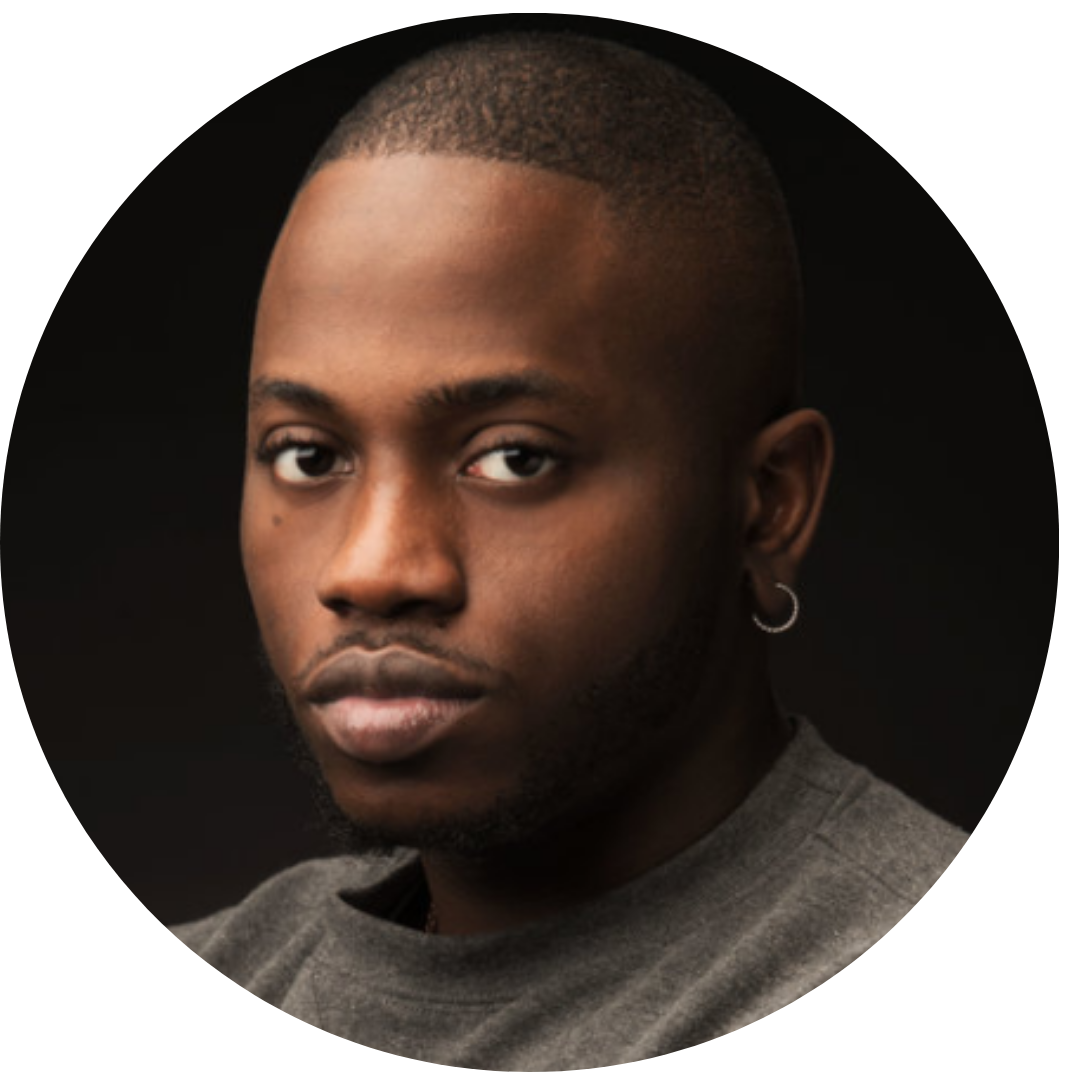
Yannis Davy Guibinga is a 26 year old photographer from Libreville, Gabon currently based in Montréal, Canada.
In order to contribute to a change in the narrative about the continent, Yannis Davy Guibinga has found in photography a strength and a tool allowing him to not only celebrate but also to document and represent the many cultures and identities on the African continent and its diaspora.
Yannis has worked with clients such as Apple, Nikon and Adobe and has exhibited works internationally in England, South Africa, Nigeria, France, Russia, Qatar, Switzerland and more, as well as featured on platforms such as CNN Africa, Document Journal, I-D, Harper’s Bazaar Russia, Condé Nast Traveler and more. His works have also been acquired to be part of permanent art collections such as the Wedge Collection in Toronto.
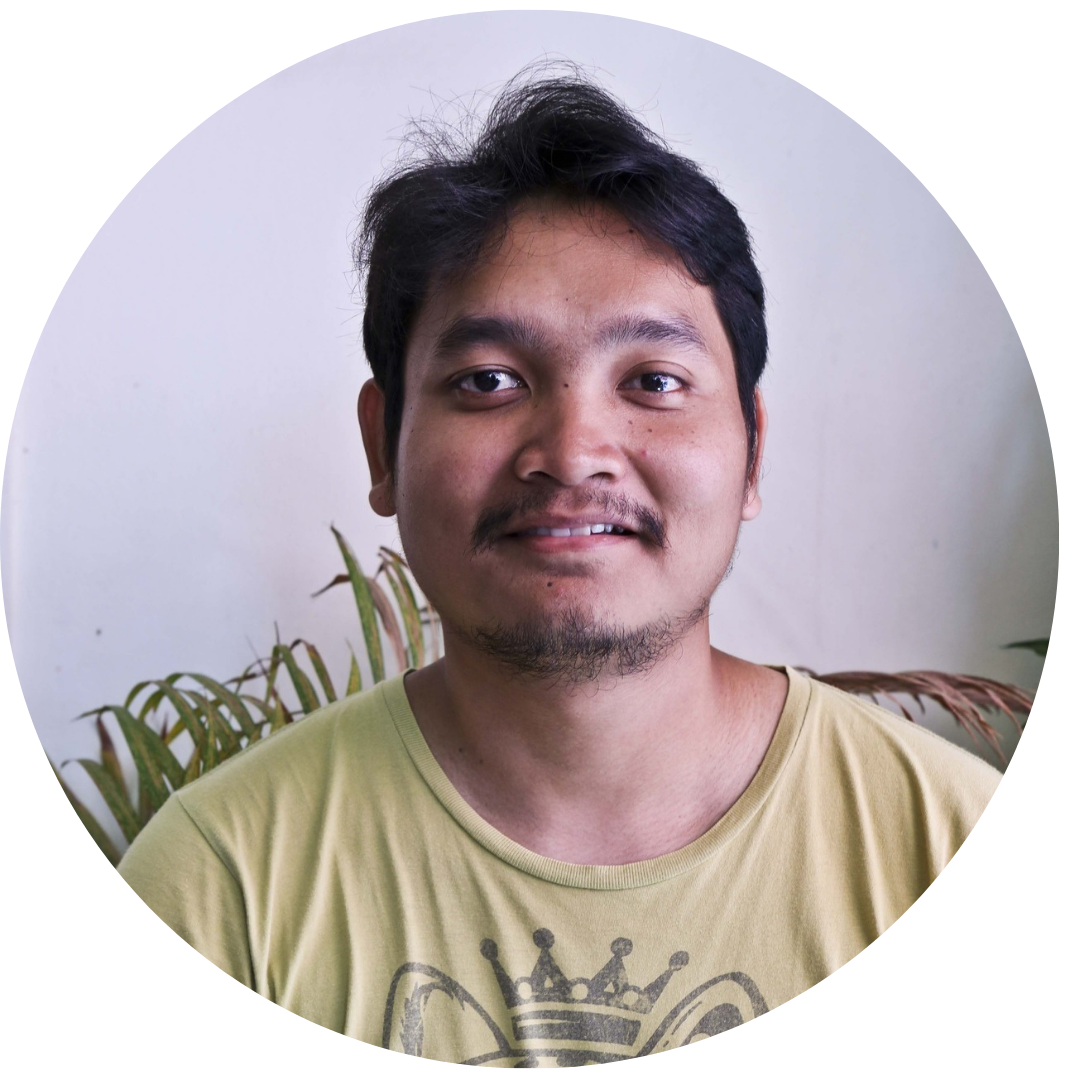
Michael Eko is a photographer based between Indonesia and the Philippines.
Since 2010, he follows Indigenous and frontline communities in the Southeast Asian region in adapting to current socioeconomic, cultural and climate change.
His ongoing works show how the history of colonialism with its relation to contemporary globalization and the climate crisis has created a huge impact on communities and their natural world. Working with media, academics, civil society groups and communities, he incorporates visual language into a multidisciplinary and participative approach to create change in society.
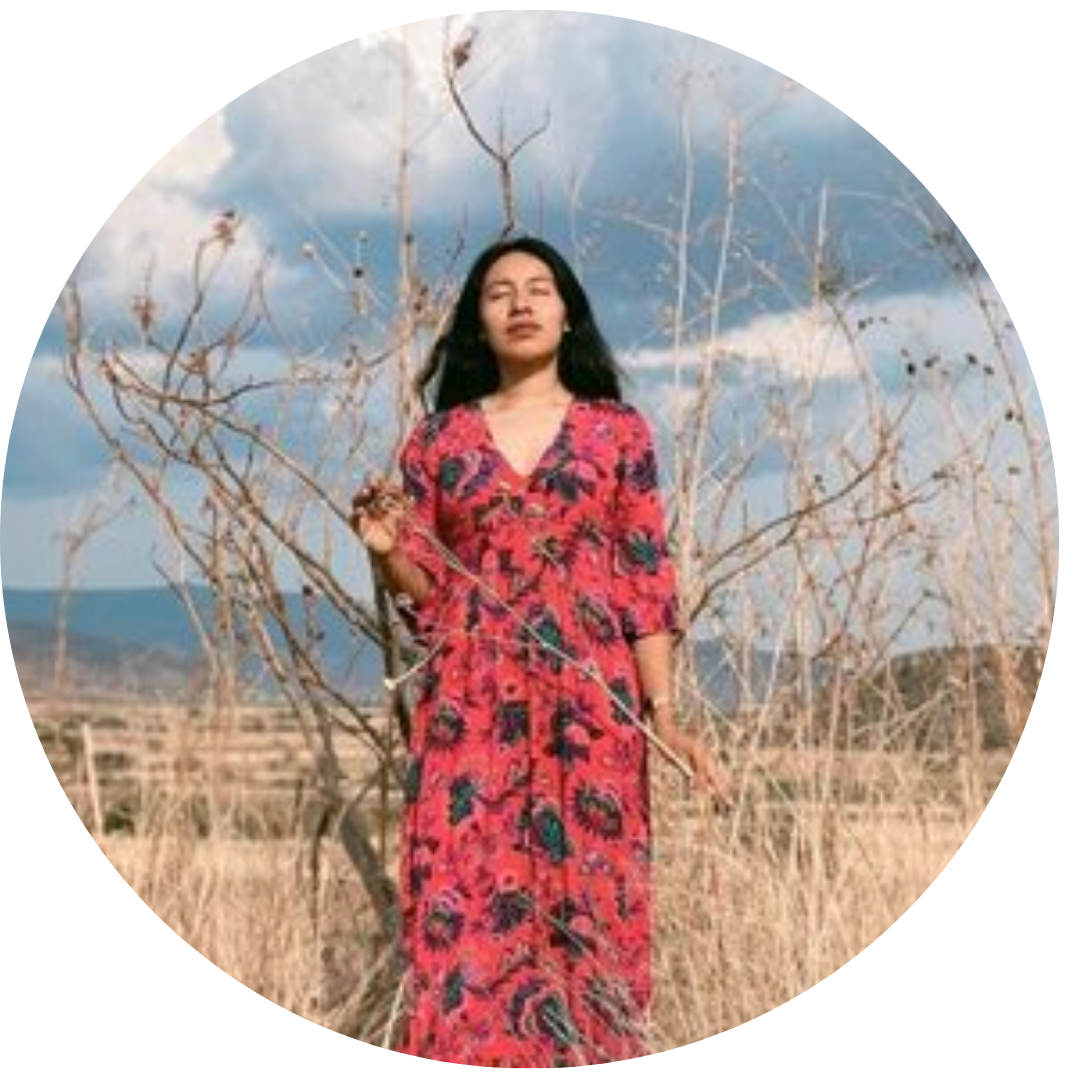
Luvia Lazo is a Zapotec photographer, textile and art lover from Teotitlan del Valle, Oaxaca. Photography is her way of portraying the worlds to which she belongs.
Her work aims to capture reality from the perspective of the contemporary Zapotec woman, creating a constellation of images through time and spaces in Oaxaca, documenting the generational gaps and the transformation of identities across ages.
She is a recipient of the Jóvenes Creadores grant of the FONCA 2020 (National Fund for the Culture of the Arts, Mexico) and inaugural recipient of the Indigenous photo grant 2021.
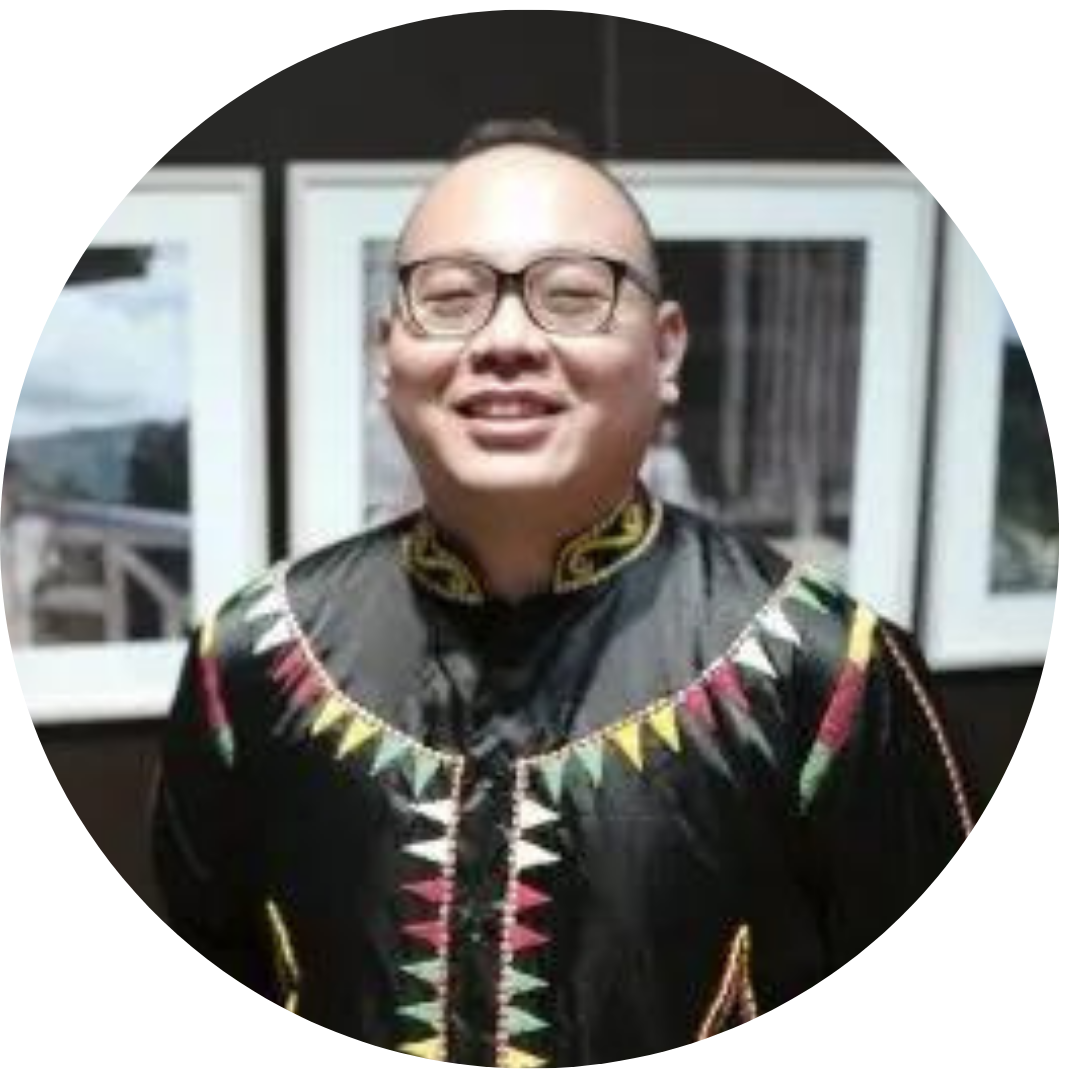
Flanegan Bainon discovered his interest in photography at the age of 18 during his backpack travel around Europe.
He is a Murut native from Borneo island specialized in portrait, lifestyle, and documentary photography.
He has worked with agencies and clients in Malaysia, Japan, Australia and traveled all over the Asia Pacific for assignments.
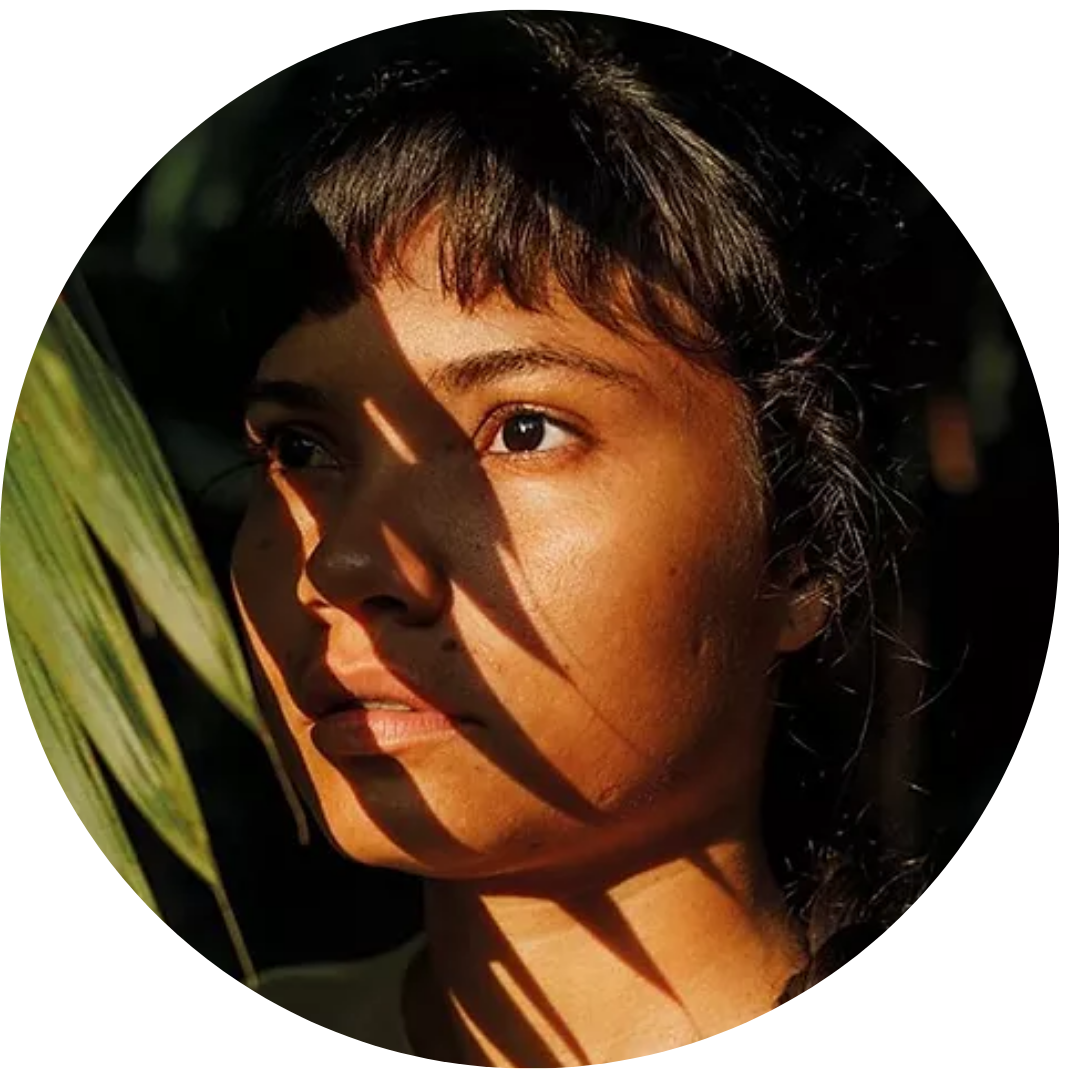
Priscila Tapajowara is the first Indigenous woman to graduate from the Paulus Faculty of Communication (FAPCOM) in the Audiovisual Production course.
Since then she has acted as cinematographic director of the webserie documentary “Ãgawaraita” and the short documentary “Tapajós Ãgawaraitá”, besides the music videos “Carimbó com Merengue”, “Misogyny” and “Tetchi aru’ngu.”
She was the Director of Photography of the documentary feature film “Arapyau: Guarani Spring” and the documentary series “Sou Moderno, Sou Índio,” producer of the Latin American Film Festival CineAlter and assistant director and researcher of the feature film “Amazônia, a nova Minamata?” Besides acting as communicator at Mídia Índia, she is vice-coordinator of the Indigenous production company Nató Audiovisual and vice-president of the Instituto Território das Artes (ITA).